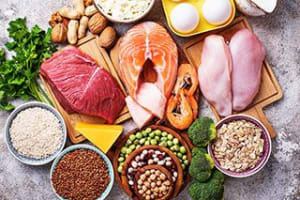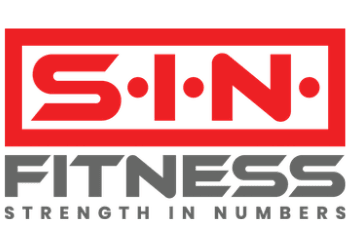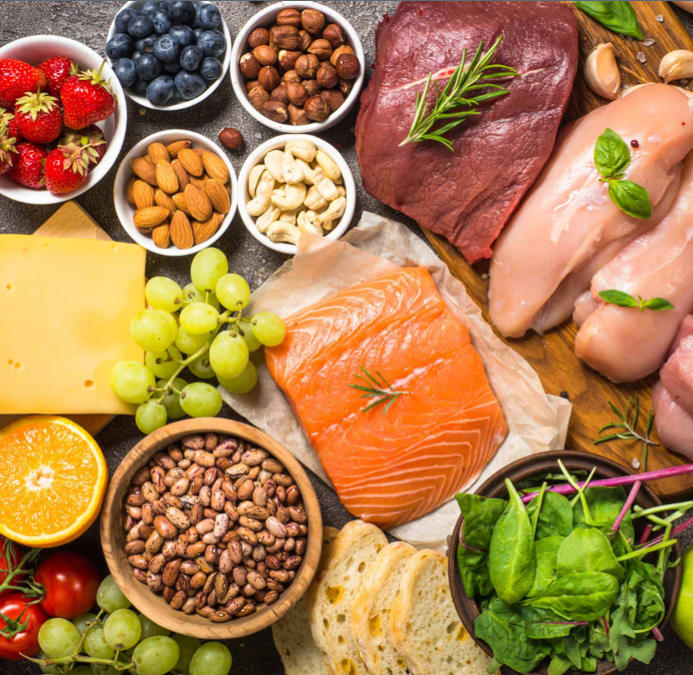
The old adage says, “an apple a day keeps the doctor away”, but what about protein? It’s very important to be getting enough protein in your diet, especially if you’re exercising as it helps muscle growth and repair. But how much should you be getting?
Though a specific answer varies from person to person, a general rule of thumb is to have .5g to 1g of protein per lb of body weight. For women, daily protein intake should be approximately 120-150g on average, and for men it should be 150-200g. (That can look like 1¼ lbs chicken breast, or 5 cans of tuna, or even 25 whole eggs!)
How does protein help?
It keeps you satiated & helps slow the absorption of sugar
By eating more protein while cutting your carb and fat intake, you reduce Ghrelin, the body’s hunger hormone, making you feel more full.
It promotes muscle growth and repair
Your muscles are made of protein. When you work out, your body tears the muscles. So, it’s important that you nourish your body with foods that aid in muscle repair. Failure to get enough protein results in the loss of muscle mass, which will lower your metabolism (you’ll burn fewer calories each day), and could lead to injury.
It fuels fat burning
Your body is constantly burning calories, while working out and when your body is at rest. And the more muscle mass you have in your body, the more calories your body burns at rest. Protein aids in growing muscle mass which helps your body burn more calories.
Protein should be present in each meal or snack. It ideally should be the backbone to everyone’s diet. A palm size of protein at meals is appropriate and smaller servings at meals. The greater the variety of sources, the better array of nutrients you’re getting.
Because finding protein on the go could be challenging, here are some great snack options available at our SIN cafe.
- Protein Smoothies - 24g protein per shake
- Quest Protein Chips - 18-19g protein per bag
- Alani Protein Bar - 16g protein per bar
- Strive Beef Stick - 14g protein per stick


